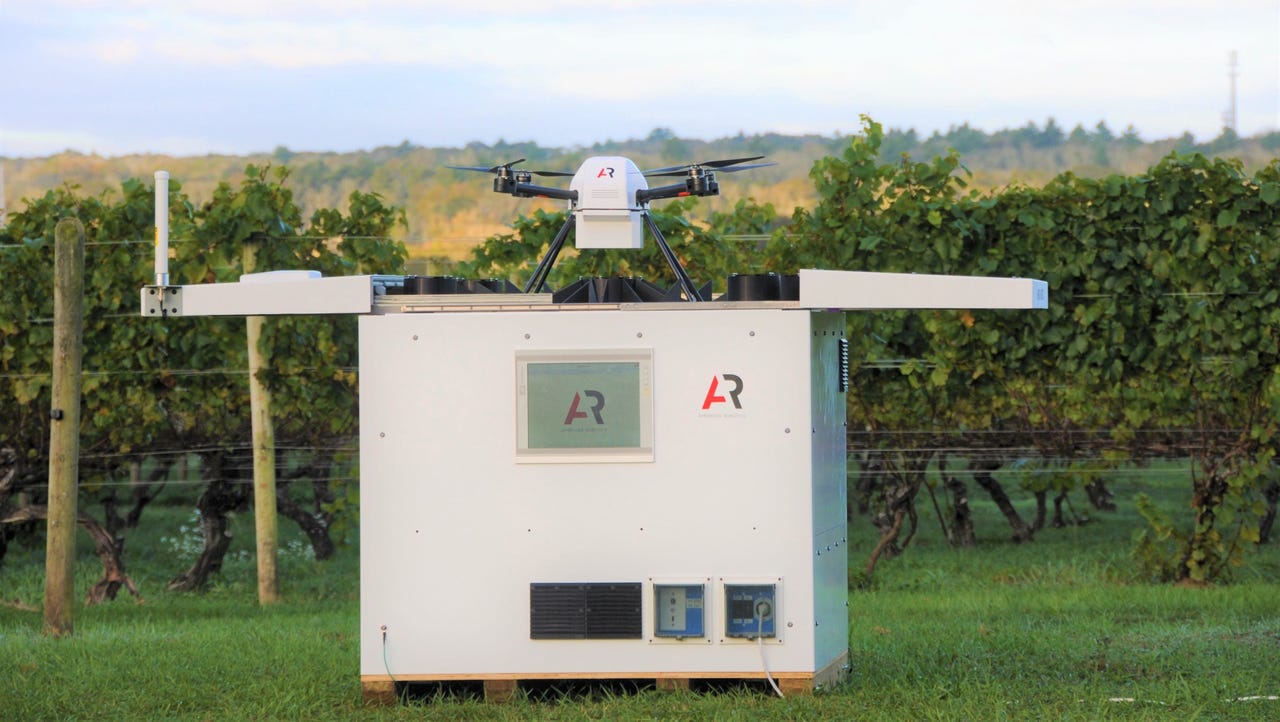
American Robotics Scout drone ready for deployment. American Robotics
The age of the commercial drone is upon us. If regulation is still a piecemeal affair, there can be little doubt the FAA is on board.
The latest evidence is an exceptionally broad waiver granted by the agency Wednesday to a prominent drone service provider for a wide variety of commercial applications. The approval comes in the form of a new exemption issued by the FAA to Ondas Holdings’ American Robotics removing the limitations set on its previous exemption, which had restricted operations to “research and development, crew training, and market surveys.” The new exemption, along with American Robotics’ waiver for fully automated beyond-visual-line-of-sight (BVLOS) operations, provides the company with the authority to operate its autonomous Scout System drone commercially without limitations on use.
Considering there was wide speculation as to whether the FAA would embrace commercial drone operations at all as recently as a couple years ago, this signals a rapid evolution in an agency that many have criticized for being slow to embrace automation and remote technologies.
“This new Exemption from the FAA is the fourth milestone approval for American Robotics in less than two years, signaling a clear trajectory towards increased implementation of nationwide autonomous commercial drone operations,” said American Robotics co-founder and CEO Reese Mozer.
American Robotics wisely played ball with the FAA from an early phase, participating in the the FAA’s industry-focused BVLOS rulemaking committee, which was tasked with helping the FAA adopt a regulatory framework for wider commercial drone adoption. The companies that invested early in that process are reaping early benefits from their friendly stance toward the FAA.
SEE: American Robotics to acquire Israeli drone leader
The FAA previously issued a nationwide waiver for Florida Power & Light to fly drones from service provider Percepto for surveillance and inspection purposes at sites owned and serviced by FPL. The BVLOS Aviation Rulemaking Committee (ARC) has provided its regulatory recommendations to fully incorporate highly automated BVLOS operations flights in US national airspace, a process that is expected to take place in the months ahead.
“American Robotics believes that autonomy, safety, and government approval are the bedrocks of a scalable commercial drone business, and we continue to execute on this mission with additional approvals from the FAA,” Mozer said in a statement.
“This achievement is not only a milestone for our company and our customers, but it’s also a signal that the commercial drone industry is progressing in the United States, an achievement that American Robotics is honored to be leading.”
SEE: Can wall-crawling inspection robots solve infrastructure problems?
Inspection continues to be a primary use case in the budding commercial drone sector, with significantly more deployments than delivery applications, in spite of the latter being better tracked in the media. With the new waiver from the FAA, American Robotics’ proprietary Scout System will operate autonomously at ranges of up to 10 miles, permitting inspections over large industrial sites, pipelines, railways, and electrical transmission lines.




